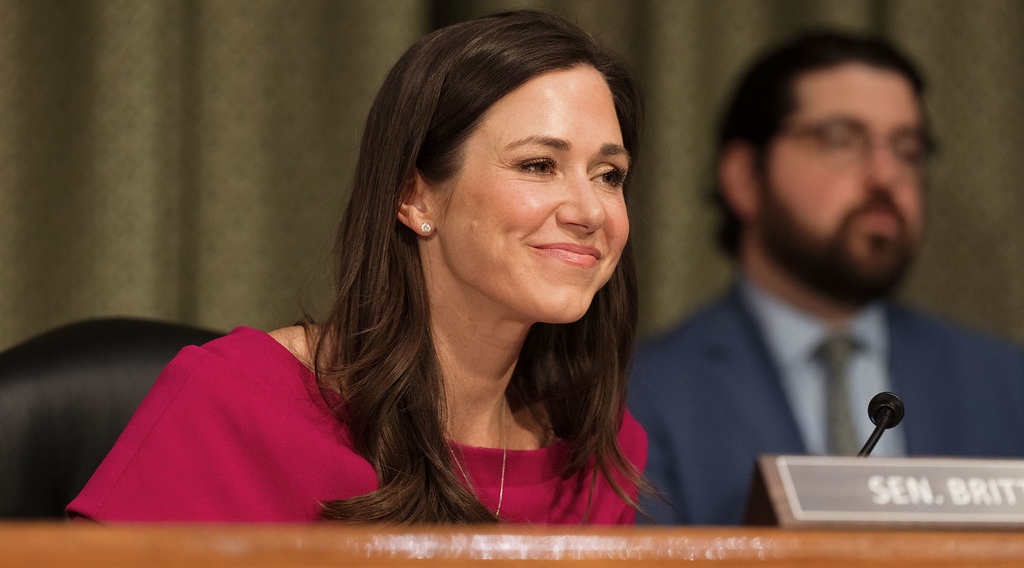Alabama’s hospitals, universities, and training programs could soon see a major infusion of funding after the U.S. Senate Appropriations Committee recently advanced its FY2026 Labor–HHS–Education funding bill.
The package includes more than $28.6 million in Congressionally directed spending for Alabama — funding that U.S. Senator Katie Britt, a member of the committee, helped secure.
Later today, Britt will join National Institutes of Health (NIH) Director Jay Bhattacharya at the University of Alabama at Birmingham (UAB) for an event recognizing the importance of federal research funding and the state’s role in advancing groundbreaking medical discoveries.
RELATED: Praise pours in for Senator Britt’s strong support of cancer research, NIH funding
“Alabama’s medical and academic communities have a strong champion in me. These investments in our research institutions, universities, local hospitals, rural health services, mental health research, child care, and education will no doubt strengthen our local communities for years to come,” Britt (R-Montgomery) said.
“Advancing this funding means significant progress toward delivering these wins for the people of Alabama. I’m proud to continue fighting to ensure that Alabamians, no matter their zip code, have access to the best possible medical care and educational opportunity so they can thrive and live their American Dream.”
According to Senator Britt’s office, the itemized funding is currently as follows:
- $3 million for the Healthcare Authority for the City of Enterprise for surgical robot procurement and installation to improve patient care.
- $300,000 for the Coosa County Emergency Management Association for ambulance procurement.
- $2.5 million for the Cullman Regional Medical Center for surgical robot procurement.
- $1.3 million for Faulkner University’s College of Health Science to procure mobile care clinics for healthcare workforce education and to improve access to care.
- $500,000 for Monroe County Hospital for mammography and CT scanner equipment and software.
- $2 million for the Southern Research Institute for laboratory infrastructure and equipment.
- $1.66 million for the University of Alabama at Birmingham (UAB) St. Vincent’s Blount hospital for CT scanner procurement and installation.
- $1.02 million for the University of North Alabama for nursing education equipment.
- $2 million for the Veterans Recovery Center for addiction treatment, therapy, and patient care equipment.
- $5.74 million for the Alabama Community College System for statewide workforce development training equipment.
- $5.29 million for Tuskegee University for the Aviation and Aero Technology Program, including student scholarships.
- $1 million for the University of Montevallo for healthcare workforce training equipment.
- $1.8 million for the University of West Alabama for nursing education equipment.
Senator Britt also worked to ensure funding for nationwide health and education-related purposes was included in the legislation.
Notably, Britt supported $48.7 billion in funding for the National Institutes of Health (NIH), with more than $7.37 billion directed to the National Cancer Institute.
Additionally, she supported maintained language prohibiting changes to Indirect Cost Rates and new language requiring NIH to disperse multi-year grant allocations on time, as expected.
RELATED: Britt’s advocacy leads to RFK praising UAB for ‘cutting-edge research’
Nationwide, Britt also voted to fund critical health care and educational programs, including:
- $8.8 billion for the Child Care and Development Block Grant (CCDBG)
- $12.4 billion for Head Start and Early Head Start; $315 million for Preschool Development Block Grants
- $90 million for the Supporting Effective Educator Development (SEED) program for K-12 education, including new report language requiring the Department of Education to disperse formula grant funding on time, as expected.
She also voted for continued and increased funding for programs, including:
- $2.193 billion for the National Institute of Mental Health (NIMH)
- $534.6 million for the 9-8-8 Lifeline; $73.4 million for the NIH IMPROVE Initiative
- $66.3 million for Rural Hospital Flexibility Grants; $14 million for the Rural Residency Planning & Development Program
- $303.5 million for the Nursing Workforce Development Program
- $1.428 billion for the Chronic Disease Prevention and Health Promotion Center.
The bill will now be considered by the full Senate before heading to the U.S. House of Representatives.
Austen Shipley is the News Director for Yellowhammer News. You can follow him on X @ShipleyAusten












